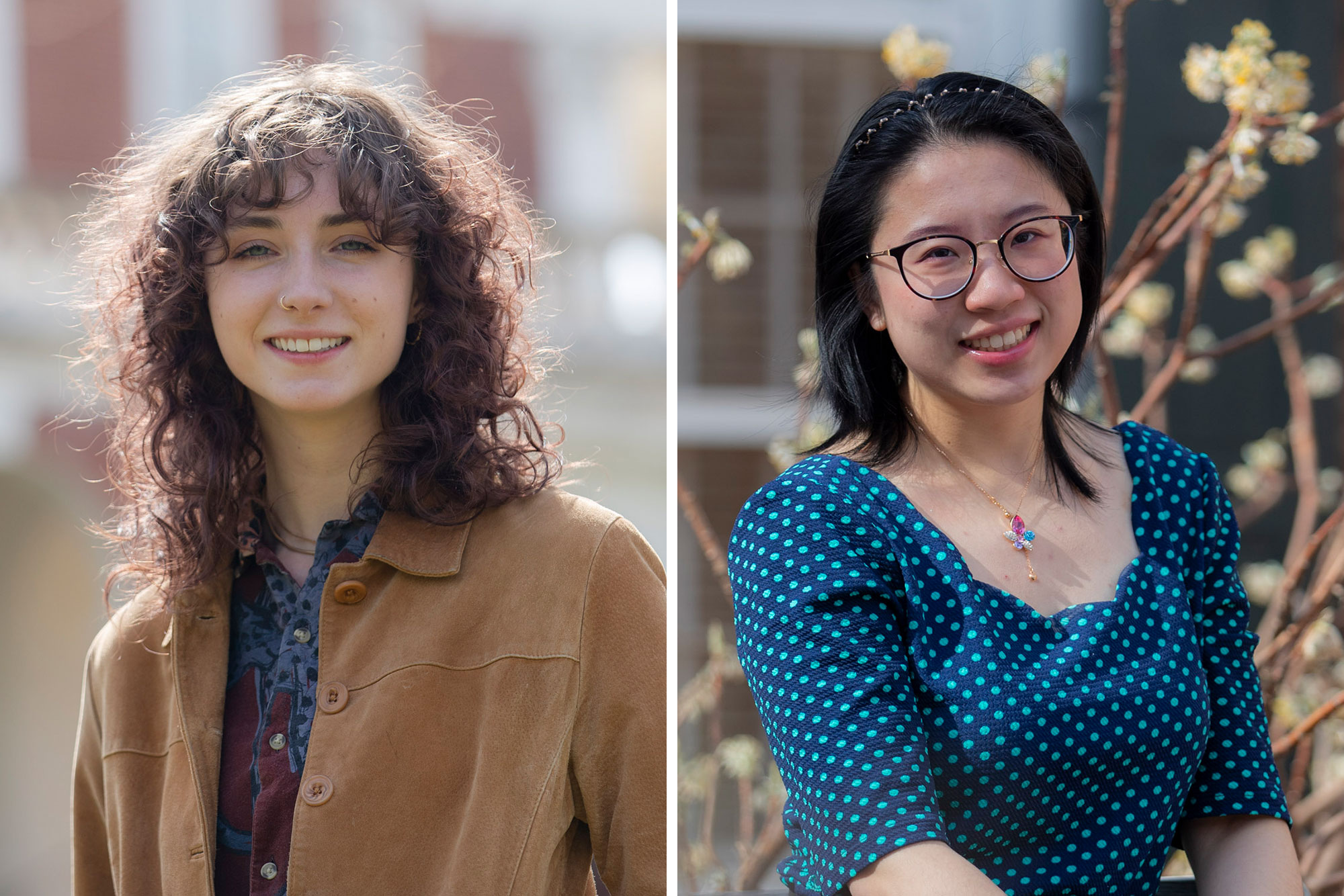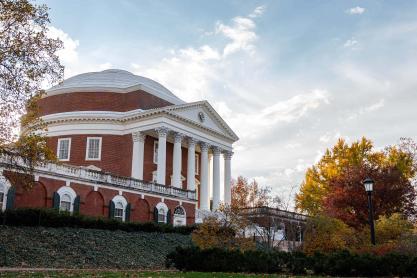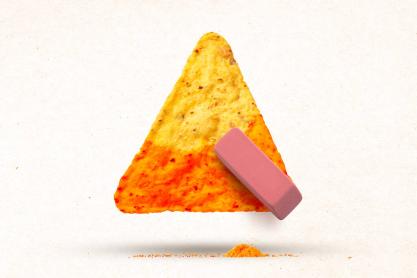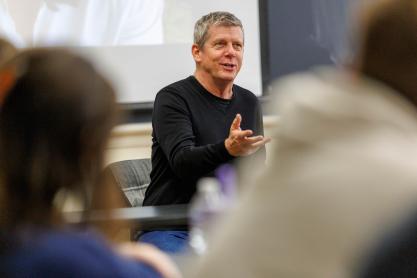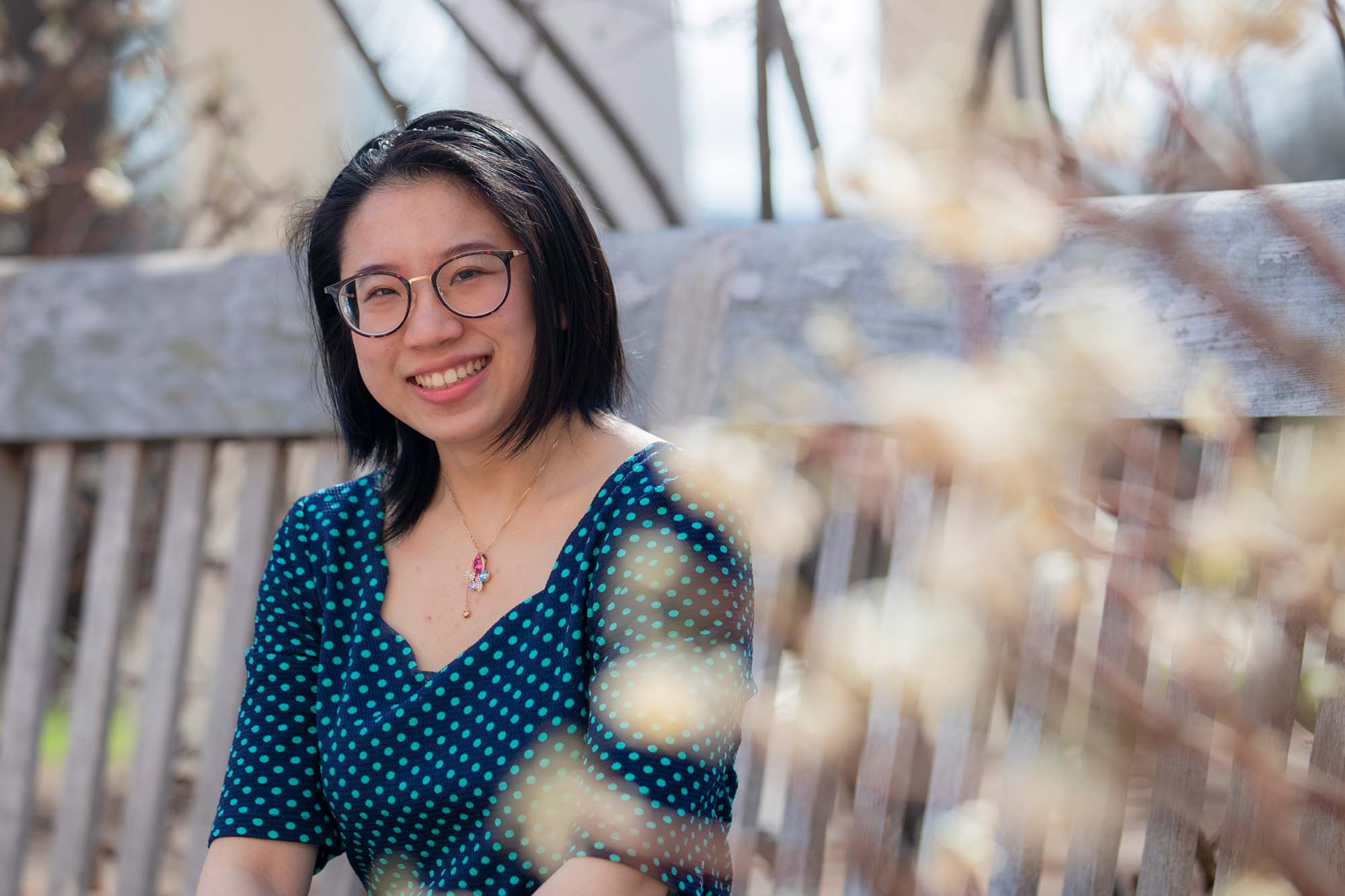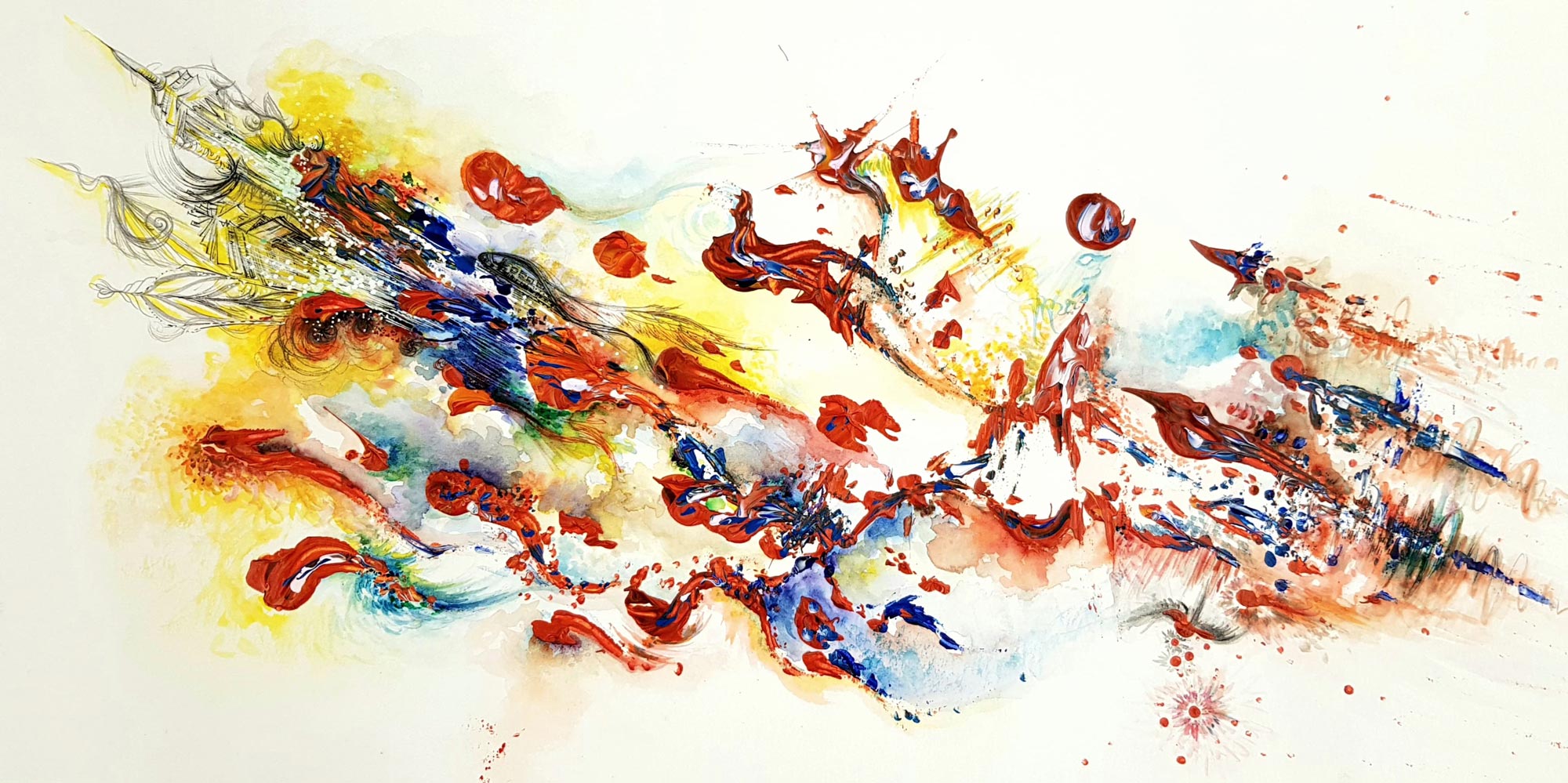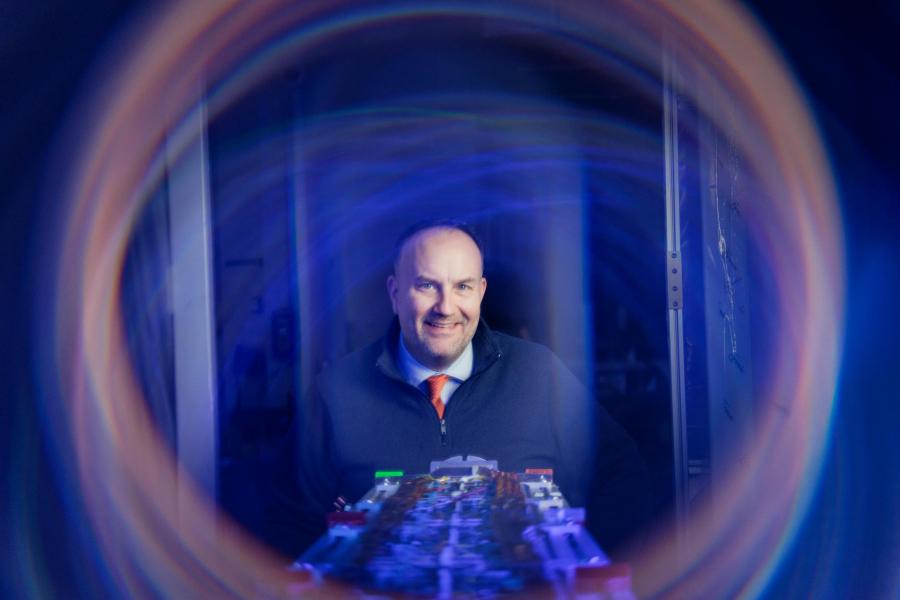Theo O’Neill wants to understand how stars are formed. Zhiwen Xu seeks a deeper understanding of metabolic diseases.
The two University of Virginia third-year students now will pursue their research as recently named Goldwater Scholars.
Goldwater Scholarships are awarded through a partnership between the U.S. Department of Defense’s National Defense Education Programs and the Barry Goldwater Scholarship and Excellence in Education Foundation.
Goldwater Scholars are selected based on their commitment to research, effective display of intellectual intensity and potential for a significant future contribution in their chosen field in the natural sciences, mathematics or engineering. Each Goldwater Scholar annually receives funding for tuition, mandatory fees, books, and room and board, up to a maximum of $7,500 per full academic year.
“We are thrilled that Zhiwen and Theo have been named Goldwater Scholars,” said Andrus G. Ashoo, director of UVA’s Office of Citizen Scholar Development. “It is a testament both to their development as researchers and to their hard work in learning to communicate well to various scientific audiences.
“Melissa Hey was the primary adviser for all of our Goldwater nominees this year and did a fantastic job of supporting them.”
Theo O’Neill
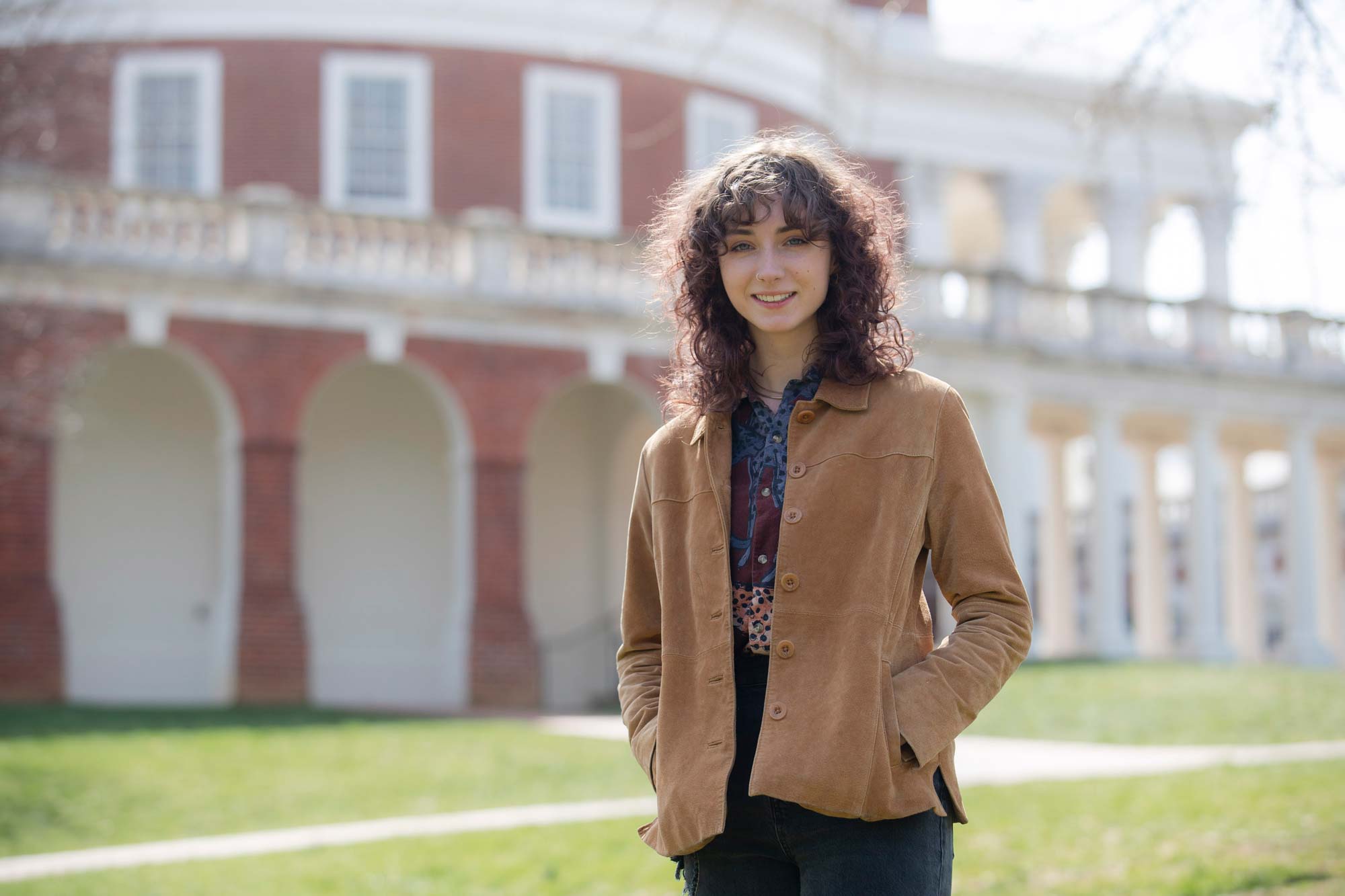
Theo O’Neill is currently researching the progression of star formation in nearby dwarf galaxies.
O’Neill, an astronomy physics and statistics double major from Tiburon, California, conducts research into star formation and applications of statistics to astronomy.
“I am particularly interested in the relationship between young stars and the clouds of molecular gas that they form within,” O’Neill said. ”My research currently involves studying the progression of star formation in nearby dwarf galaxies, which are interesting because their chemical compositions are similar to the conditions of the early universe. By studying molecular cloud structure in these areas, we can improve our understanding of how stars form in extreme environments.”
O’Neill has been interested in astronomy since high school, when their classmates and they participated in astronomy research at a local observatory.
“This experience inspired me to study astronomy in college and I am so grateful for having had the opportunity,” they said. “My advisers at UVA have been incredibly supportive and have fostered my interest in star formation, the interstellar medium and data science. I think the complex interplay of physics involved in these processes is fascinating, and I enjoy the creative aspect of exploring applications of statistics and data science to my work that I’m able to incorporate.”
So far, O’Neill’s research has included an analysis of likely triggers for star formation in another galaxy, a statistical study of the masses of molecular clouds in our own galaxy and an evaluation of physical processes that can bias the observations of molecular clouds.
“I mainly work with data from the Atacama Large Millimeter/sub-millimeter Array [in Northern Chile] and the Hubble Space Telescope [in low Earth orbit],” they said. “I hope my research will contribute to our understanding of the relationship between young stars and the clouds of molecular gas from which they form, and to the process of star formation in general in environments very different from our own.”
Astronomy professor Remy Indebetouw said O’Neill has “exceptional scientific insight and programming skills” for someone so young. O’Neill has been working with the professor on several problems related to star formation.
“Astronomers know that stars form from interstellar gas clouds, but the details remain to be worked out about what kinds of stars are likely to form from a particular observed gas cloud,” Indebetouw said. “Theo began with analysis of gas clumps in one of our neighbor galaxies, but in the process of figuring out how to interpret those data, we realized that a quantitative model for gas clumps in such environments had not been published, so [O’Neill] switched gears from analyzing telescope measurements, and added a second paper on the theoretical models.”
O’Neill’s work in statistics is instrumental in their astronomy, Indebetouw said.
“In my research, we can’t perform experiments under controlled conditions and so are limited to what we can infer from observations,” O’Neill said. “This makes statistics a key part of harnessing the full potential of the data we do have.
“Additionally, new telescopes and large surveys are generating larger volumes of data on a nightly basis than ever before. The field is adapting to take full advantage of the opportunities this presents through an increased focus on data science.”
